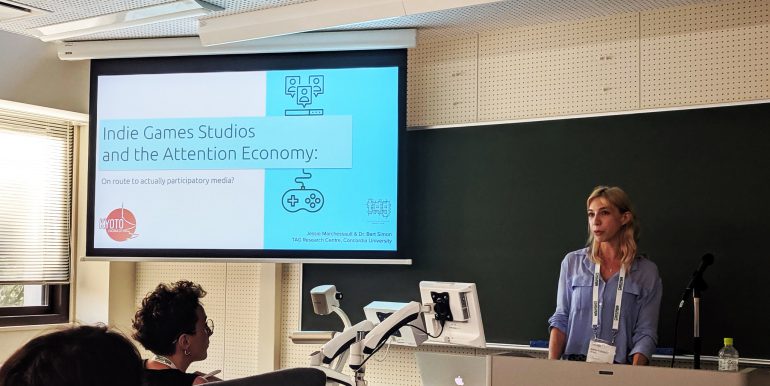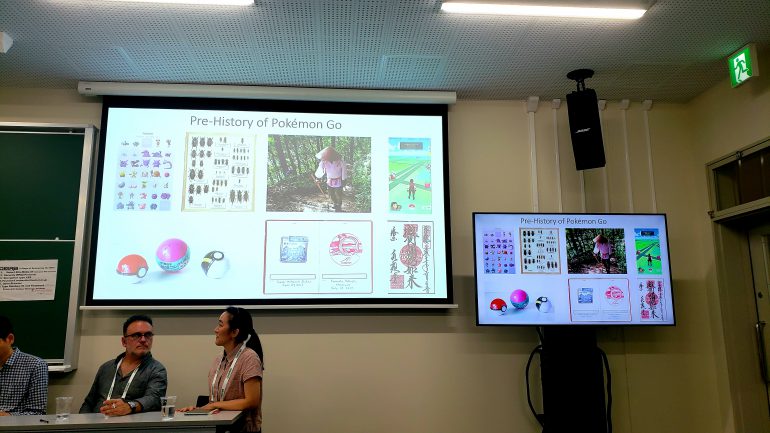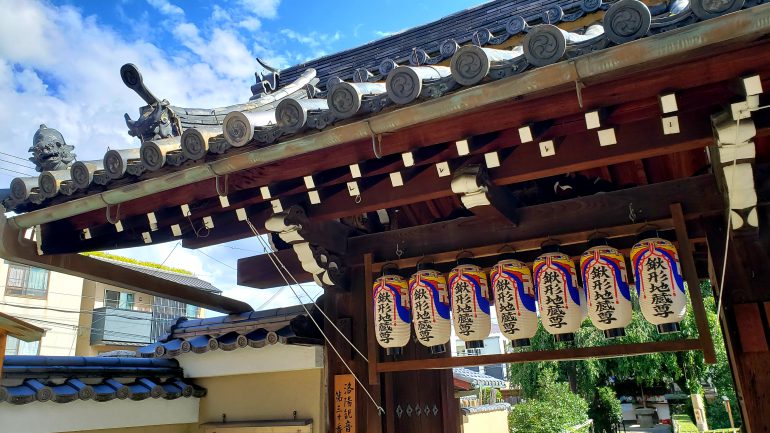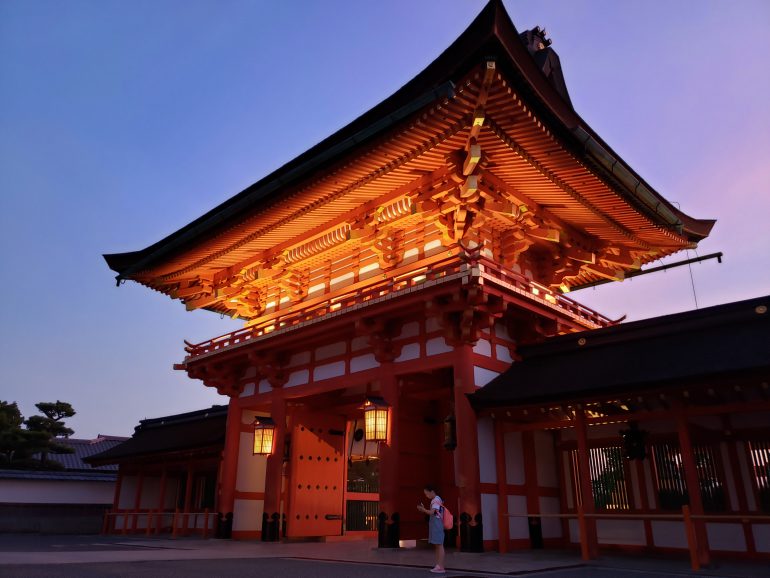
In early August 2019, I had the incredible, once in a lifetime opportunity to travel across the globe to Kyoto, Japan with a group of other TAG students for the 2019 Digital Games Research Association Conference (DiGRA) held at Ritsumeikan University from August 6-10th. The conference had over 400 attendees from around the world, featured eight different tracks of talks and three highly engaging keynote presentations. It was my second conference experience and though I felt intimidated as I am still a junior academic, the atmosphere was welcoming, open and full of interesting discussions and networking opportunities.

At the conference, I presented a paper in the Games Business stream I am co-authoring with Dr. Bart Simon called “Indie Games Studios and the Attention Economy: On route to actually participatory media?”. Though I already presented an earlier version of this paper at the Media in Transition Conference at MIT in May 2019, I felt that it had since grown quite a bit and I was looking forward to receiving more feedback. This paper has grown out of the research I have been conducting at Gameplay Space for the Indie Interfaces Discoverability Project over the last year-and-a-half and focuses on the unique, co-creative relationship that indie developers have with their community members throughout their game development process.
My presentation argued that, unlike other creative industries (including AAA games), independent game developers involve their communities in the design and creation of their game in ways that are not reducible to social media marketing practices. Accordingly, we believe that the nature of community involvement in a more direct, ongoing, and intimate way through virtual spaces like Discord, has not only transformed how developers are thinking about game development as community-oriented but has also created space for the emergence of indie ‘superfans’. Our interviews revealed that these superfans emerge as ‘champions’ of an indie studio’s community, and devote countless hours and energy helping, moderating, creating and interacting with developers and other community members.
Overall, I felt that my presentation went very well! Though a couple of the questions I asked were challenging, I received excellent feedback from audience members after the presentation. The experience also provided me with a better sense of what we will need to add, remove and edit before publishing the paper in an academic journal.

While my primary reason for attending DiGRA was my presentation, I was also invited to participate in a pre-conference workshop called ‘The Future of Location-Based Games Research’ on August 6th held by several researchers from Tampere University in Finland. As my M.A. thesis (tentatively called ‘Playing the City: Pedagogical Placemaking through Locative Media and Pervasive Games’) will primarily focus on local communities of play surrounding location-based games such as Ingress, Pokémon GO, and Harry Potter: Wizards Unite, comparing different kinds of locative apps and games, this workshop came at an excellent time as I am in the process of finalizing my proposal. The workshop was a full day, had approximately twenty participants and consisted of presentations in the morning, followed by discussion groups surrounding major themes in Location-Based Games research such as PLAY, MAKE, GAME, CULTURE. I felt that it was extremely productive and gave me a much better idea of the kinds of questions I will be investigating during my research. Questions that emerged during the workshop included:
How can location-based games be more intertwined/involved with local spaces, histories, cultures, etc?
What are the differences between Location-Based Games and Location-Based ‘Experiences’?
How can we move beyond Pokemon Go as researchers?
Beyond this, my whole experience of Japan was fantastic and full of excitement, wonder and child-like joy. I got the chance to spend time exploring and discovering Kyoto and as I grew up watching and absorbing Japanese Media and felt that it especially reflected the magical landscapes seen in many games, TV shows and films that I have watched throughout my life. The deafening cries of mid-day cicadas combined with the wonderful smells, sights and sounds of Kyoto (and the amount of cat-related and Pokémon paraphernalia) made the entire experience one that I will certainly never forget.



(A special thanks to TAG for funding my travel to this conference)
